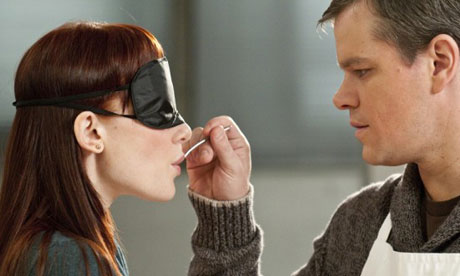
Literature, whether it books, film or video games, has constantly been under attack. Whether it the personal beliefs of the creator or one aspect of the story believed to be ‘distasteful’.
Of course as time progressed, books became a gold standard for us, and escaped any fundamental criticism, this criticism being the kind that comes from your typical suburbanized *peaches and daisies* smiling bimbo, who shrieks at her husband ‘Think of the children!’ for merely whispering ‘damn president’s a wasp’
Unfortunately, the acceptance of books in culture did not stop these pitchfork wielding activists. They instead turned on the new; first films and now of course video games.
They accuse the mediums as a whole of promoting sexism, violence and racism.
While all these accusations are incredibly disagreeable, there is one argument that these pathetic believers have levelled at all storytelling mediums, one argument that has always been around, and one that makes my blood boil like it never has before when involving art. And that is of course, the idea that fictional violence is somehow ‘wrong’, and should not be part of entertainment.
The tone of these pathetic whinets argument implies that those who enjoy fictional violence are barbaric, and that violence is merely a device tacked on to true ‘art’ or entertainment. Their argument is silly and pointless. I don’t think this, I know this. Since as far back as the beginnings of what inspired/created our modern cultures, violence (both real and fictional) has not only been a part of entertainment, but actually was, and still is entertainment.
For example the Greek poet and Philosopher ‘Homer’ was an incredibly well-respected man, who is one of those little-ancient Greeks who is said to have had a huge influence on our culture and literature. For the sake of brevity I’m butchering a lot of huge essays on this guy, but overall, we modern people seem to think of him as a man who did everything right when it came to influence. I’m sure your typical violence hating parents won’t disagree with that. I wouldn’t be at all surprised if they also wanted you learning about him. They probably wouldn’t have a shred of doubt in thinking it worthwhile to read one of his epic poems. So isn’t it quite …ironic, that one passage in Homer’s ‘Iliad’ depicts Achilles (having just killed Prince Hector) tying the prince’s corpse to his chariot, and then riding around the city of Troy, the dead body of a hero violently getting slashed and knocked by the uneven ground, and becoming brown and murky from all the dirt. This sequence is horrific, sadistic, and is incredibly taunting to the people of Troy, these people being those whom idolized Hector. And despite this, it really seems to tell us something about Achilles, about his attitude to the war, and his disdainful personality. It does so in a way that someone merely telling us couldn’t. It’s a brilliant and arguably moving moment of characterization. ‘Oh but it’s only a book!’ the whinging parents say. ‘You can’t see it happening! Not like in a film or game!’ True, but if the writer is good enough (which in the case of ‘Iliad’ he most certainly is) the words can create an image that feels so real and close to us, that it no longer matters. It no longer matters that we can’t directly see the conflict and no longer matter if the reader isn’t particularly imaginative. The words guide us through. ‘b-but… Homer’s culture had slaves and public execution!’
Shut up. How the hell does the few bad things one civilisation does completely outweigh the good? The discoveries? and the intelligence? For Christ sakes, the ancient Greeks had a basic idea of what electricity was. And besides, if the space men of the future follow that logic, the all civilisations and generations (Including our own) will be rendered stupid.
Clever characterisation aside, I think we as all humans just generally enjoy the simple novelty of one human doing harm to another. Perhaps this is very cynical of me, but I think that deep down, even the most, noble and self-righteous prick has some anger or hate for a type of person. A certain stereotype and /or demographic perhaps. This primal rage is something I think we all feel, we just have different wallpaper for it.
Of course most sensible and clear minded people know better than to actually go through with any violent fantasies they may have about that stereotype group. So what do they do? They turn all their hatred on the bad guy. Now it’s Darth Vader and robot Hitler that embody everything you hate-not traffic wardens. You see, it’s stress-relief. It’s healthy.
-Taha
-Taha





